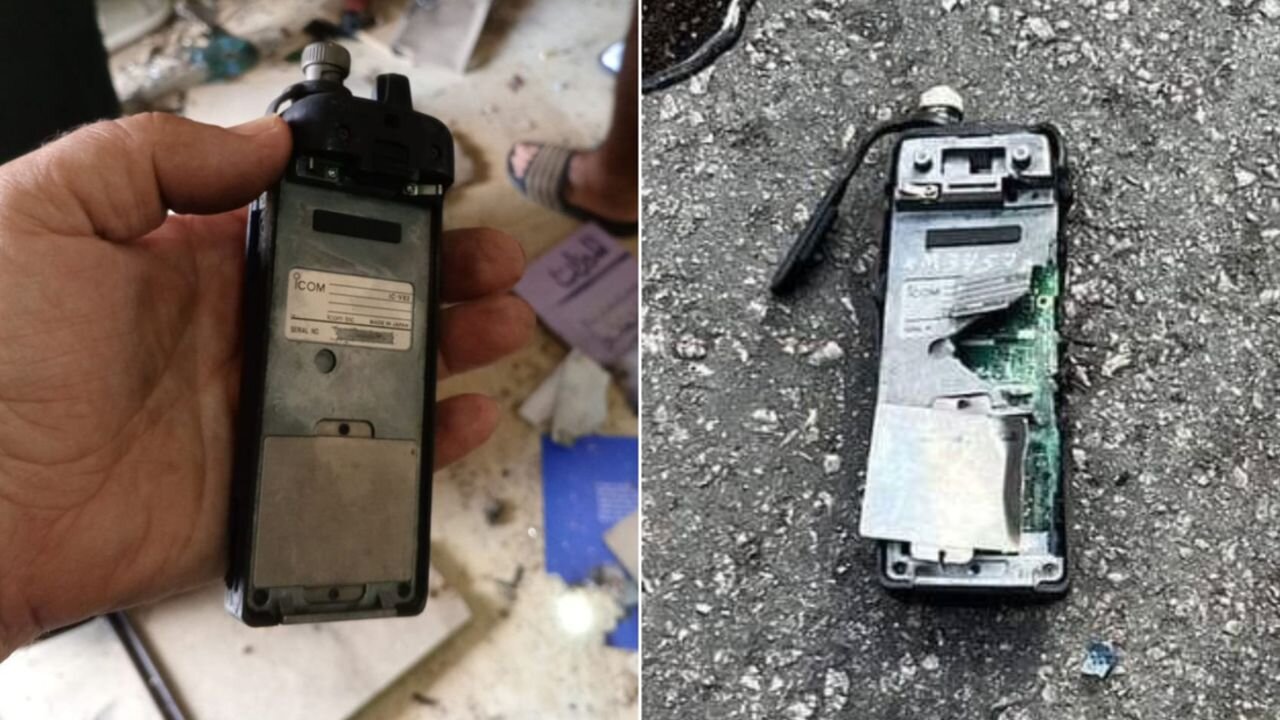Are electronic devices becoming time bombs?

TEHRAN - At least 32 people, including two children, were killed and thousands more injured, many seriously, after communication devices, some used by Hezbollah members, dramatically exploded across Lebanon on Tuesday and Wednesday.
In the blasts on Wednesday, exploding walkie-talkies killed 20 and injured at least 450 people, according to Lebanon's health ministry.
The explosions occurred in the vicinity of a large crowd that had gathered for the funerals of four victims of Tuesday's simultaneous pager blasts, which killed at least 12 people and injured nearly 3,000.
The back-to-back explosion of communication devices has caused anxiety in the society. Now, they are afraid of anyone using a phone.
Two firms based in Taiwan and Hungary accused in media reports of manufacturing the pagers have both denied responsibility, with the Taiwanese government saying the different parts of the pagers were not from Taiwan.
"The components are low-end IC (integrated circuits) and batteries, I can say with certainty they were not made in Taiwan," Economy Minister Kuo Jyh-huei said.
A Japanese company which apparently makes the walkie-talkies said it stopped producing that model 10 years ago.
Citing US officials, the New York Times said that the pagers received messages that appeared to be coming from Hezbollah's leadership before detonating. The messages instead appeared to trigger the devices, the outlet reported.
The walkie-talkies that were blown up on Wednesday were devices that were purchased by Hezbollah five months ago, according to a security source speaking to Reuters.
At least one explosion was close to a funeral being held in Beirut for some of the victims of Tuesday's attack, creating panic among those near the procession. This move by Israel reminds one about terrorist groups who detonate bombs among mourners who are burying their love
Details about the walkie-talkies detonated in Wednesday's explosions are still coming to light.
Footage shot in the aftermath showed destroyed devices bearing the brand Icom, a Japanese company. A statement from the firm describes the IC-V82 model as a handheld radio which was exported to the Middle East from 2004 to 2014 and has not been shipped since then.
Icom said production on that model stopped 10 years ago. The manufacturing of the batteries has also stopped, it says.
The company says it is not possible to confirm whether the IC-V82s that exploded in the Wednesday attacks were shipped directly from Icom, or via a distributor. It said any products for overseas markets were sold only to the firm’s authorized distributors.
But the models may not even be from Icom.
Earlier, a sales executive at the US subsidiary of Icom told AP news agency that the devices which exploded in Lebanon appeared to be a knock-off product – adding it was easy to find counterfeit versions of the product online.
The pagers that exploded on Tuesday were a new brand that Hezbollah had not used before, a Hezbollah member told AP. A Lebanese security official told Reuters that around 5,000 pagers were brought into the country about five months ago.
Labels seen on fragments of exploded pagers point to a pager model called the Rugged Pager AR-924. But its Taiwanese manufacturer Gold Apollo has denied any involvement with the explosions. When the BBC visited Gold Apollo on Wednesday local police were searching the company's offices, inspecting documents and questioning staff.
The founder, Hsu Ching-Kuang, said his company had signed an agreement with a Hungarian-based company - BAC - to manufacture the devices and use his company's name. He added that money transfers from them had been "very strange", without elaborating.
BBC Verify has accessed BAC’s company records, which reveal it was first incorporated in 2022.
Its CEO Cristiana Bársony-Arcidiacono told NBC that she knew nothing about the explosions. “I don’t make the pagers. I am just the intermediate. I think you got it wrong," she said.
The Hungarian government said the company had "no manufacturing or operational site" in the country.
Unnamed US and Israeli officials told Axios that detonating the pagers all at once was initially planned as the opening move in an "all-out" offensive against Hezbollah. But in recent days Israel became concerned Hezbollah had become aware of the plan - so they were set off early.
Prof Simon Mabon, chair in International Relations at Lancaster University, told the BBC: "We know that Israel has a precedent of using technology to track its target" - but he called the scale of this attack "unprecedented".
Lebanese Public Health Minister Firass Abiad said damage to the hands and face made up the majority of injuries. The victims presenting to emergency rooms were a variety of ages, from the old to the very young, some wearing civilian clothes, he told the BBC's Newshour program.
This report by the BBC reveals several bitter points. At one point it shows that from now on no one can be safe if vicious minds decide to use electronic devices for their malicious purposes.
The incidents in Lebanon serve as a wake-up call for the entire world. This time vicious minds in Israel decided to kill and injure as many Lebanese people as they could, no matter if the victims were civilians, including children.
Companies that produce electronic devices must also come to their senses. They must be careful that their products would not be counterfeited for evil purposes.
Now people around the world have a legitimate right to become suspicious of electronic devices and consider them as time bombs.
It is expected that people in other countries, in solidarity with the Lebanese citizens, threaten to boycott buying electronic devices. Such a threat will compel companies specialized in producing such devices to closely watch all the stages of their work, from designing, manufacturing, selling, etc. Failure to do so, they will fall into the wrong hands and cause tragedies.
